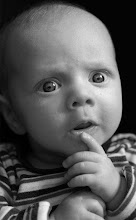I have gone out, a possessed witch,
haunting the black air, braver at night;
dreaming evil ("Her Kind" 1-3)
Out of the ash
I rise with my red hair
And I eat men like air. ("Lady Lazarus" 82-4)
The Confessional poets are often written off as self-absorbed and obsessed. They are dismissed as uninteresting because they write about nothing but themselves and their own violation of taboo. Yet over and over, these poets offer a mythical counter-point to the mundane self.
Are these poets writing about themselves? Or is there more at stake here?
Women have long been characterized in stereotypical terms--damsels in distresses, virgins, whores. The confessional women poets seem to embrace and enact the role of the witch, at once a power female figure and a social reject. True enough, there's a lot of autobiography injected into these poems, but what do we make of the non-autobiographical materials? How does this mythologizing of the poet/self affect us as readers? In 1950s and 60s America, what female iconography do these more troublesome images combat?
(If the witch offered here combats the super-domestic television mom of this era, what do we make of her domesticization [I think I just invented that word] of her cave in stanza 2?)
Χαίρετε, νικῶμεν
12 years ago

No comments:
Post a Comment